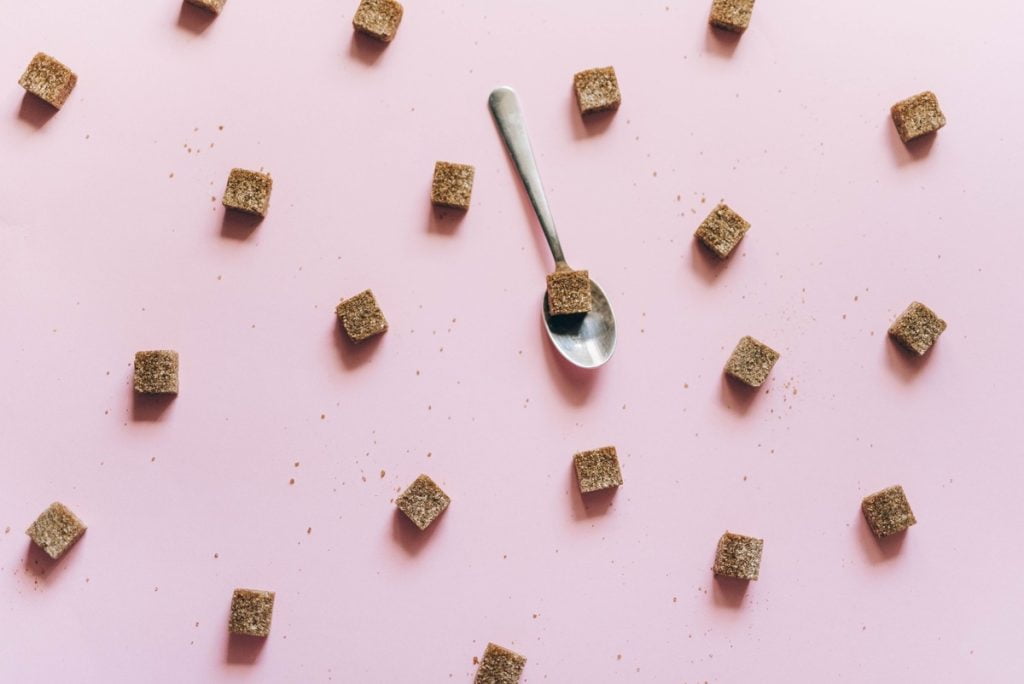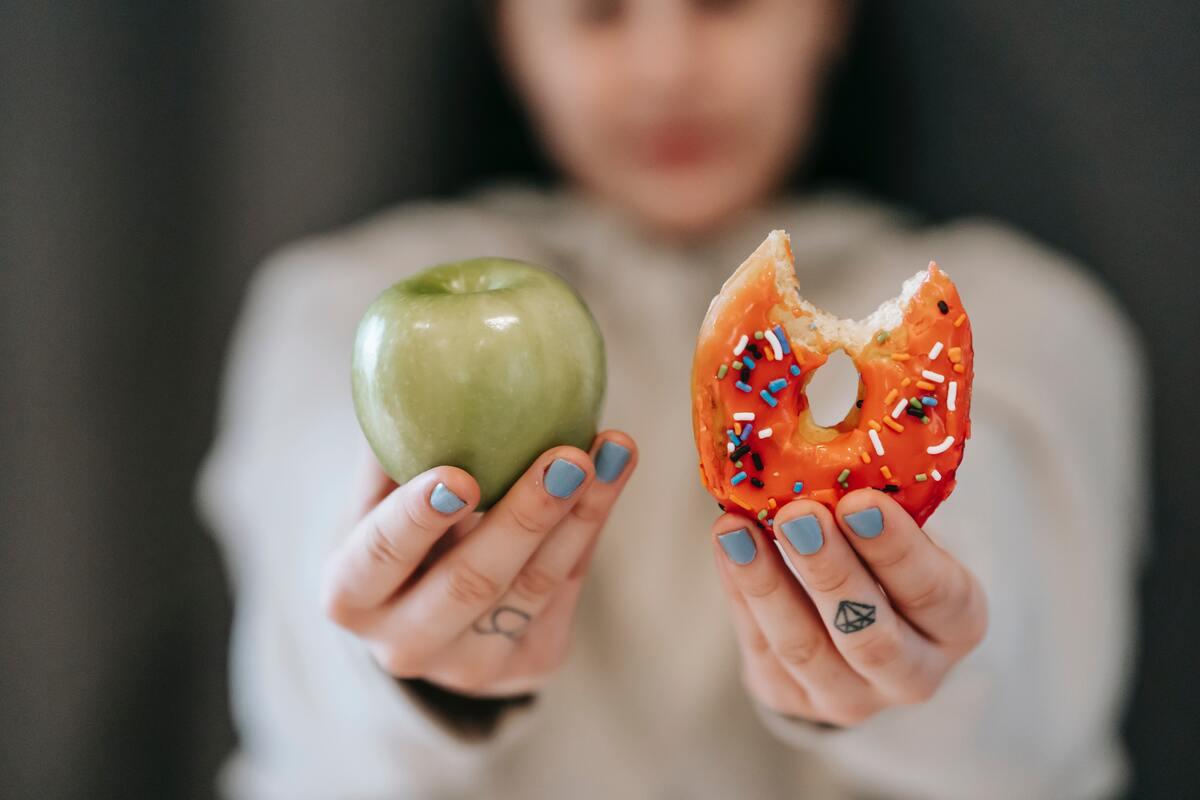Sugar Addiction
Sugar addiction refers to the compulsive consumption of sweet foods and drinks, despite negative consequences. It is a type of behavioral addiction that is characterized by cravings, tolerance, and withdrawal symptoms. The over consumption of sugar can lead to a variety of health problems, including weight gain, insulin resistance, type 2 diabetes, and cardiovascular disease.
The excessive consumption of sugar is largely in the United States due to its presence in many processed and packaged foods. The rewarding effects it has on the brain is what keeps the craving alive. The brain releases dopamine, a neuro-transmitter that is associated with pleasure, when sugar is consumed, leading to a cycle of cravings and overconsumption. This can easily lead to addiction.
Breaking the cycle of sugar addiction requires a combination of diet changes, increased physical activity, and lifestyle modifications. It may also involve seeking support from friends and family, as well as working with a healthcare professionals. With determination and a commitment to change, it is possible to overcome sugar addiction and achieve a healthier, more balanced lifestyle. At Live Life Lighter now we offer professional help on how you can fight sugar addiction and enjoy a better life.
Effects of sugar addiction on physical activities and weight loss
Excessive consumption of sugar can have significant effects on physical activity and weight gain:
- Decreased energy levels: Consuming large amounts of sugar can lead to rapid spikes and drops in blood sugar levels. As a result, one is left feeling fatigued due to low energy levels.
- Weight gain: Sugar is high in calories and is often consumed in large quantities, which can lead to weight gain and obesity.
- Decreased physical performance: Excessive sugar consumption can affect physical performance by impairing the body’s ability to use stored energy, leading to decreased endurance and muscle strength.
- Increased risk of chronic diseases: Consuming large amounts of sugar is associated with an increased risk of type 2 diabetes, heart disease, and other chronic health conditions.
- Reduced motivation for physical activity: The negative effects of sugar on energy levels and physical performance can reduce motivation for physical activity and lead to a sedentary lifestyle.
In conclusion, excessive sugar consumption can have detrimental effects on physical activity and weight gain. To maintain good health and physical fitness, it is important to limit sugar intake and make healthier food choices. Regular physical activity and a healthy diet can help prevent weight gain and reduce the risk of chronic diseases. At Live Life Lighter now, we present you with all you need to get rid of sure addiction and craving.
How does sugar addiction cause obesity?
Sugar addiction can contribute to obesity in several ways:
- Excessive calorie intake: Sugar is high in calories, and excessive consumption of sugary foods and drinks can result in a significant increase in daily calorie intake, leading to weight gain and obesity.
- Stimulation of hunger hormones: Consuming large amounts of sugar can disrupt the normal function of hunger hormones, leading to overeating and weight gain.
- Decreased feelings of fullness: Sugar is not very satiating, and consuming sugary foods can lead to an increase in food cravings, which can result in overeating and weight gain.
- Insulin resistance: Chronic overconsumption of sugar can lead to insulin resistance, which impairs the body’s ability to use insulin effectively and results in weight gain.
- Physical dormancy: The negative effects of sugar on energy levels and physical performance can reduce motivation for physical activity and lead to a sedentary lifestyle, which can contribute to weight gain and obesity.
Other than encouraging you to take more of it, sugar has the ability to influence your hormones so that you end up over feeding without realizing it. The worst part is people never recognize the effects of sugar in the body. It is said that a typical American consumes over 17 teaspoons of added sugar which is way above what health experts recommend.
Tips on how you can manage sugar addiction.
1. Take a hot shower.
Taking a shower can help reduce sugar cravings in several ways:
- Stress reduction: Showers are known to be relaxing and can help reduce stress levels. Stress is a common trigger for sugar cravings, and reducing stress can help reduce the urge to consume sugary foods.
- Improved mood: Showers can improve mood and reduce feelings of anxiety and depression, which are also common triggers for sugar cravings.
- Distraction: Taking a shower can provide a distraction from cravings, giving a person time to reflect and make healthier food choices.
- Physical activity: Showers can also be considered a form of light physical activity especially cold showers, which can reduce cravings and improve mood.
- Refreshing: Showers can also be a way to refresh the body and mind, reducing the desire for a quick energy boost from sugary foods.

2. Go for a brisk walk outside.
Going for a brisk walk can help reduce sugar cravings in several ways:
- Stress reduction: Exercising reduces stress levels and can help reduce the urge to consume sugary foods.
- Improved mood: Exercise can improve mood and reduce feelings of anxiety and depression. These are common triggers for sugar cravings.
- Increased insulin sensitivity: Brisk walking can increase insulin sensitivity, which helps regulate blood sugar levels and reduce sugar cravings.
- Distraction: Going for a brisk walk can provide a distraction from cravings, giving you time to make healthier food choices.
- Physical activity: Exercise is a form of physical activity that can boost energy levels and reduce the desire for a quick energy boost from sugary foods.
3. Drink a glass of water.
Drinking water can help reduce sugar addiction in several ways:
- Increased hydration: Water helps to hydrate the body, which can reduce feelings of fatigue and improve energy levels. Drinking water can also reduce the desire for sugary drinks that are high in calories.
- Reduced cravings: Drinking water before meals can reduce hunger and cravings. This helps to prevent overeating and reducing the urge to consume sugary foods.
- Improved digestion: Water helps to flush out toxins and improve digestion. As a result reducing the desire for sugary foods that can contribute to digestive problems.
- Distraction: Drinking water can provide a distraction from cravings, giving a person time to reflect and make healthier food choices.
- Regulated blood sugar levels: Water can help regulate blood sugar levels. This will reduce the risk of spikes and drops in blood sugar that can trigger sugar cravings.
In conclusion, drinking water can be an effective strategy for reducing sugar addiction in several ways. To reduce sugar cravings and improve overall health, it is important to drink enough water and make healthy food choices. Eating more fruits, vegetables, and whole grains, and limiting sugary foods and drinks is a good place to begin.
4. Eat a fruits, best alternative for sugar addiction
Eating fruits can help reduce sugar addiction in the following ways:
- Natural sweetness: Fruits are naturally sweet and can provide a sweet taste without the added sugar. Eating fruits can help satisfy sugar cravings without consuming excessive amounts of sugar.
- Increased fiber: Fruits are high in fiber, which helps to regulate digestion, reduces hunger, and stabilizes blood sugar levels. This can help reduce the urge to consume sugary foods.
- Improved hydration: Fruits are also high in water content, which can help hydrate the body and reduce feelings of fatigue.
- Nutrient dense: Fruits are rich vitamins, minerals, and antioxidants that are essential for good health. These can help improve energy levels and reduce the desire for sugary foods.
- Distraction: Eating fruits can provide a distraction from cravings, giving a person time to reflect and make healthier food choices.
In conclusion, eating fruits can be an effective strategy for reducing sugar addiction by the best alternative for sugar. Other than fruits, natural sugar sources like honey are way much safer than processed sugar. To reduce sugar cravings and improve overall health, it is important to incorporate a variety of fruits into the diet. Together with other healthy foods such as vegetables, whole grains, and lean proteins you will never go wrong.
Conclusion
Consuming excessive amounts of processed sugar can lead to a rapid weight gain. Sugar is often found in unhealthy, high-fat foods that are also associated with weight gain. Funny thing is, these are the types of food that Americans love. However, reducing or eliminating sugar intake can help support weight loss by reducing overall calorie intake.


